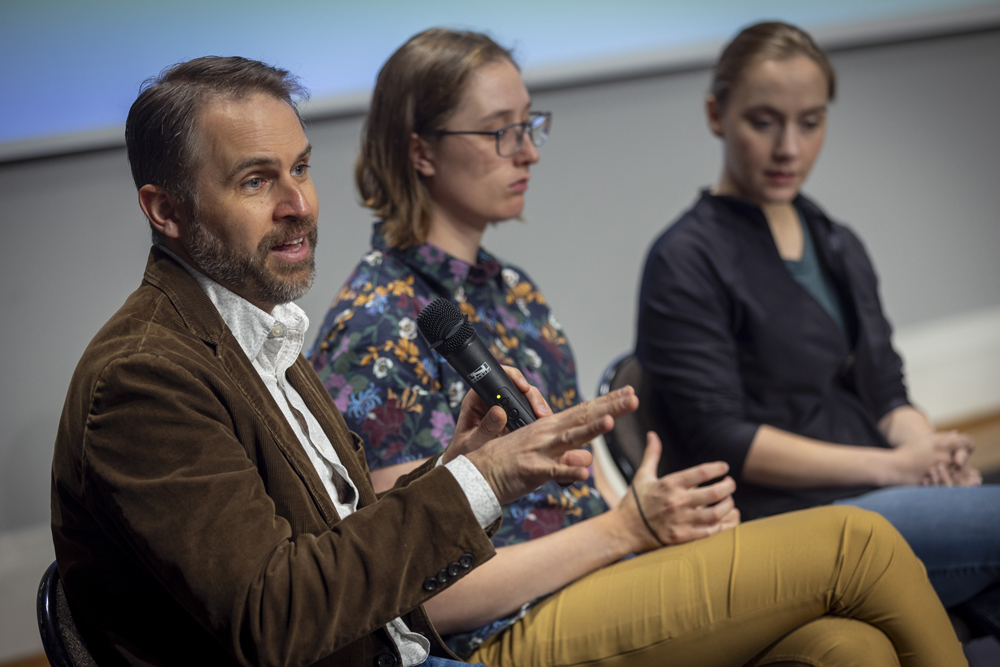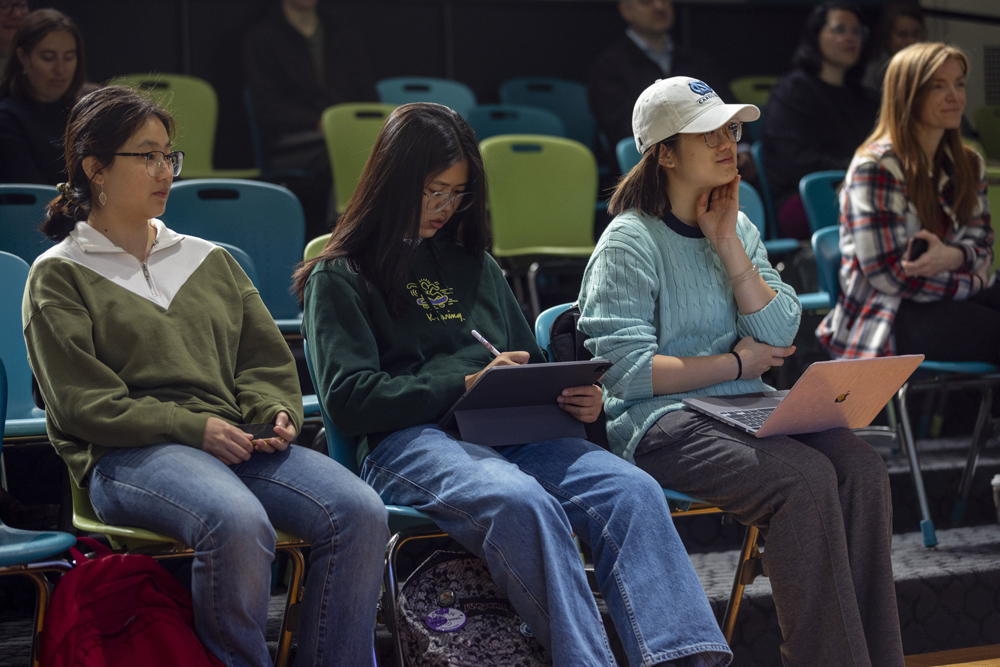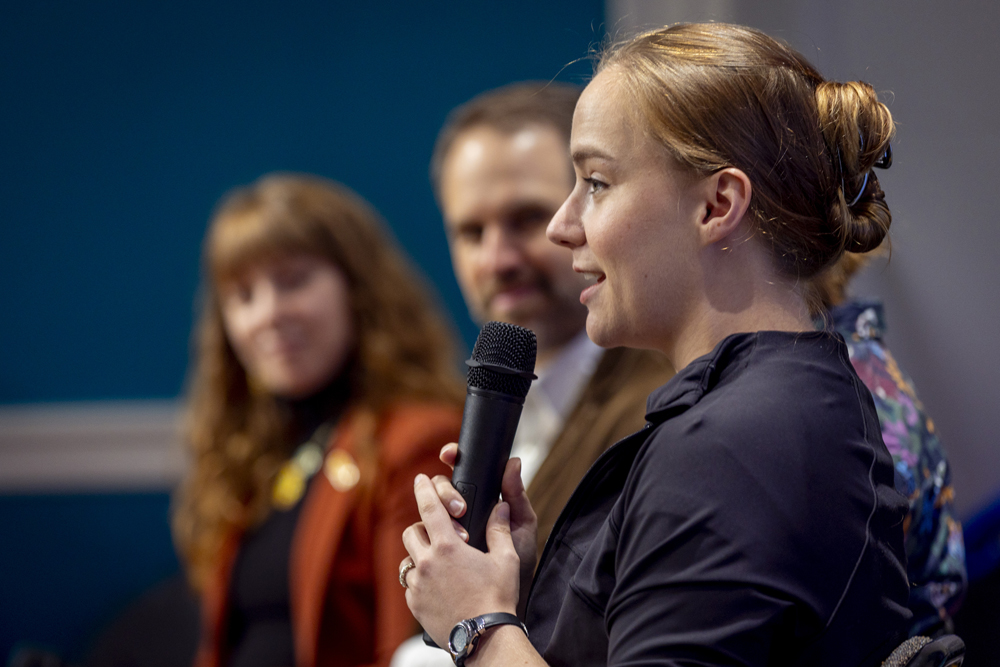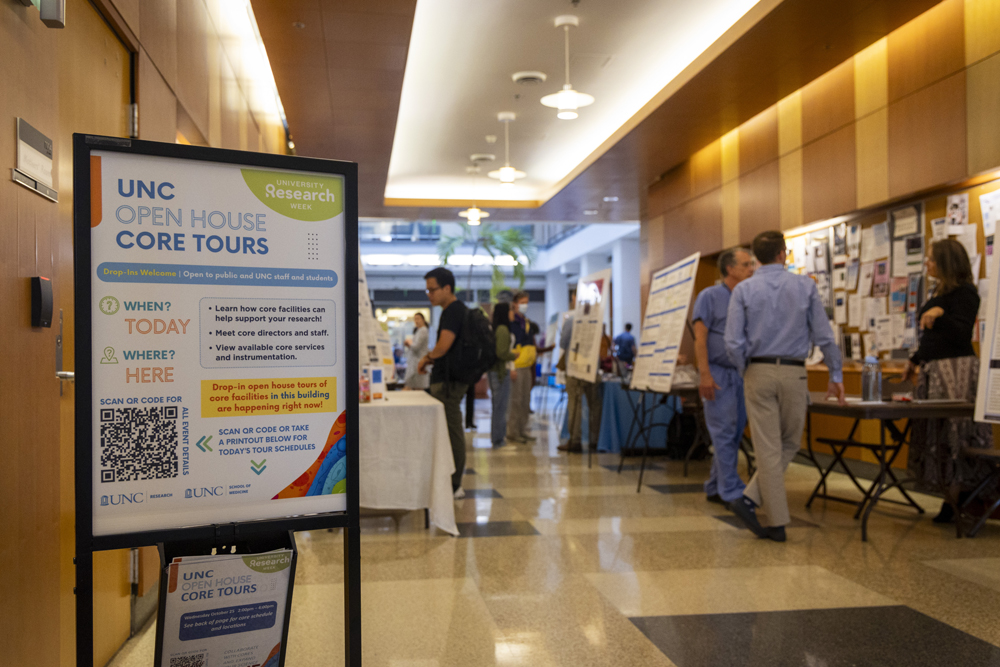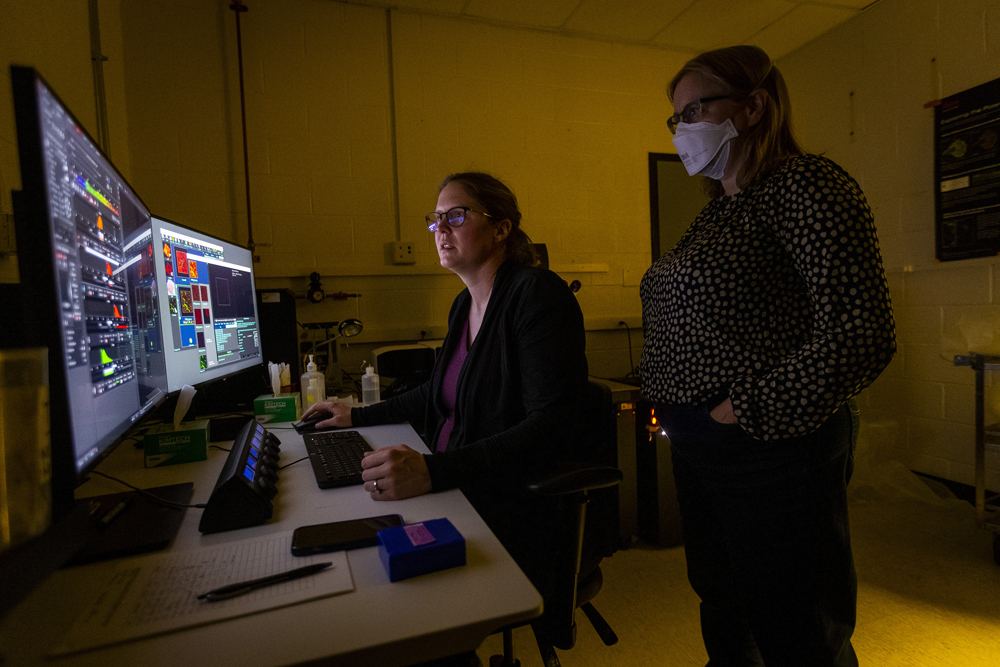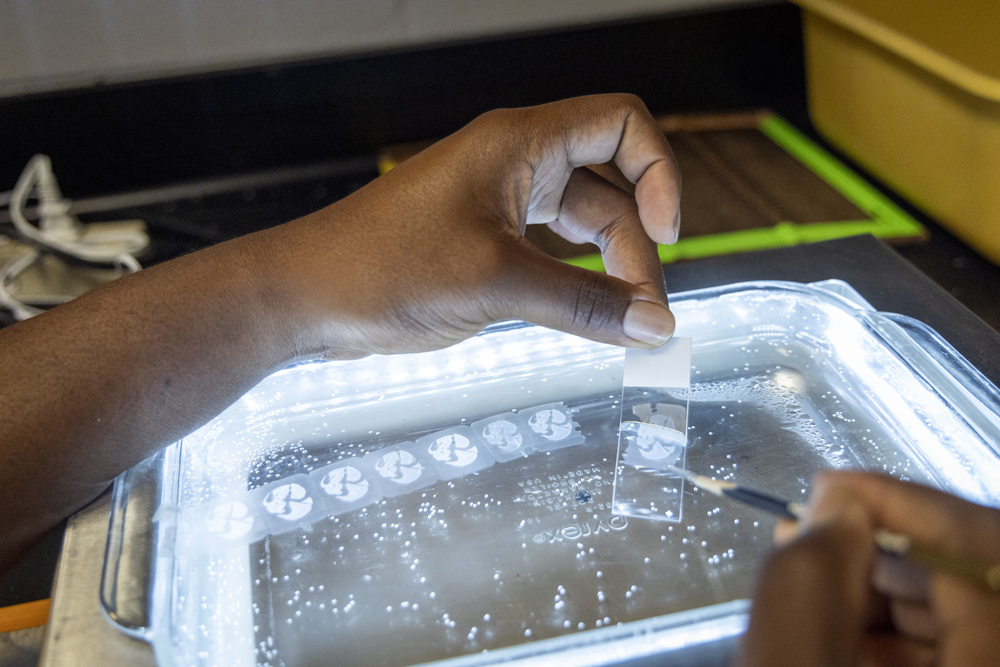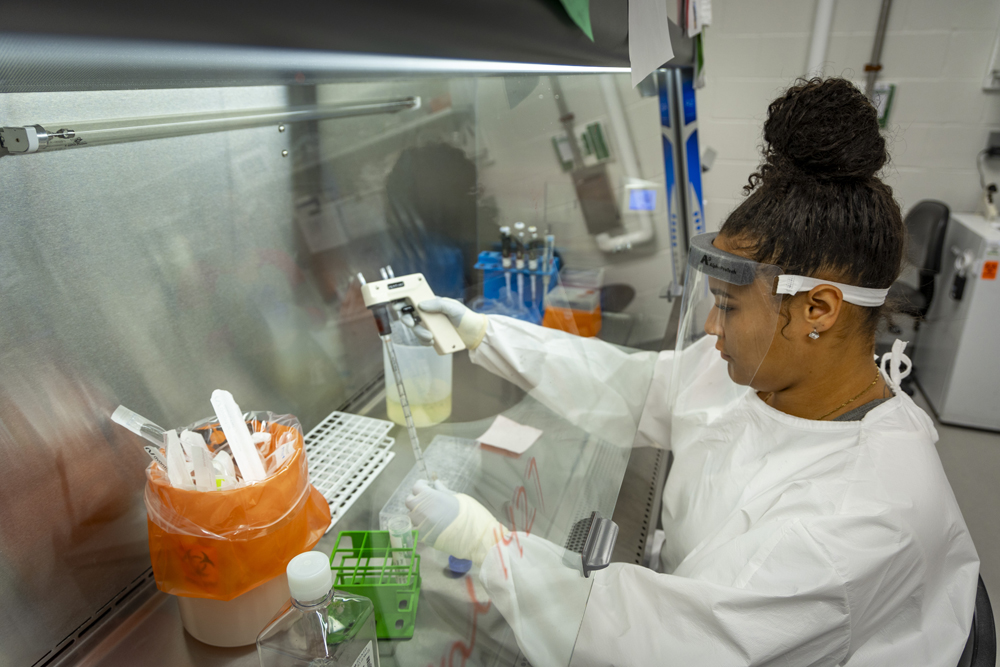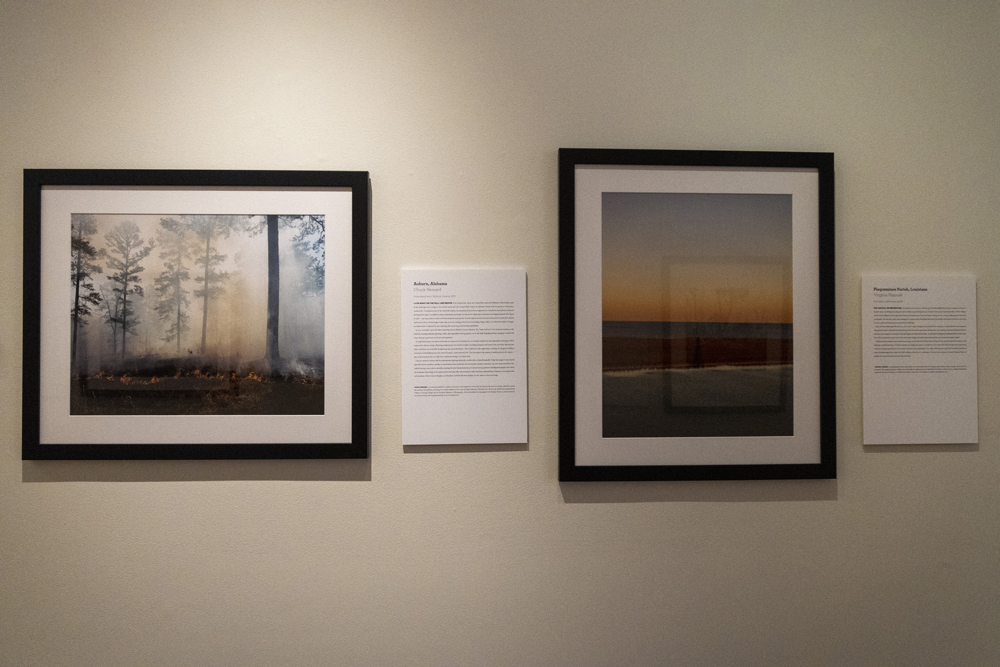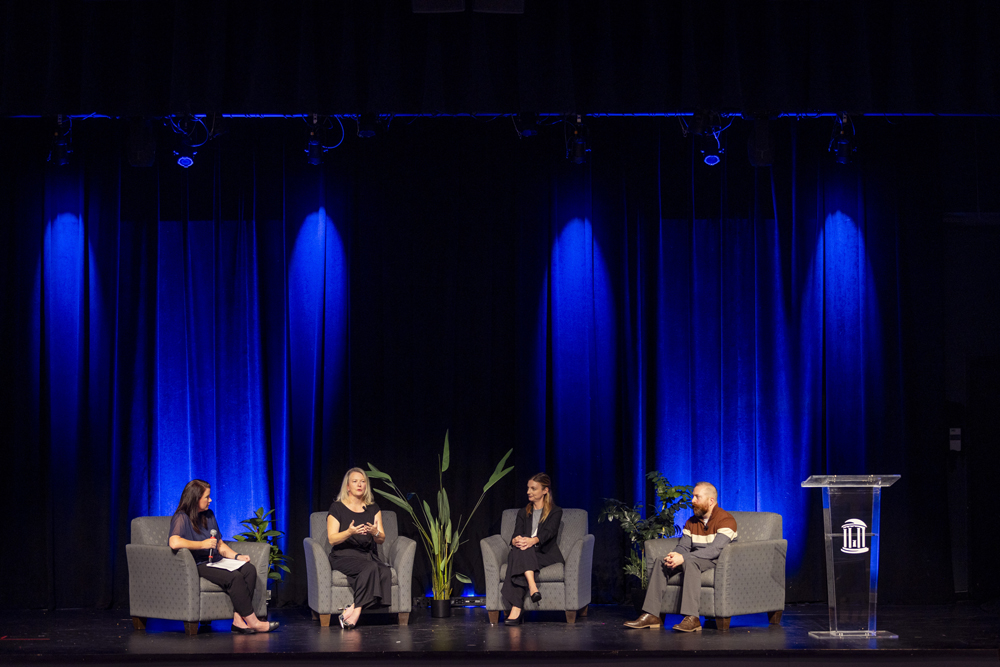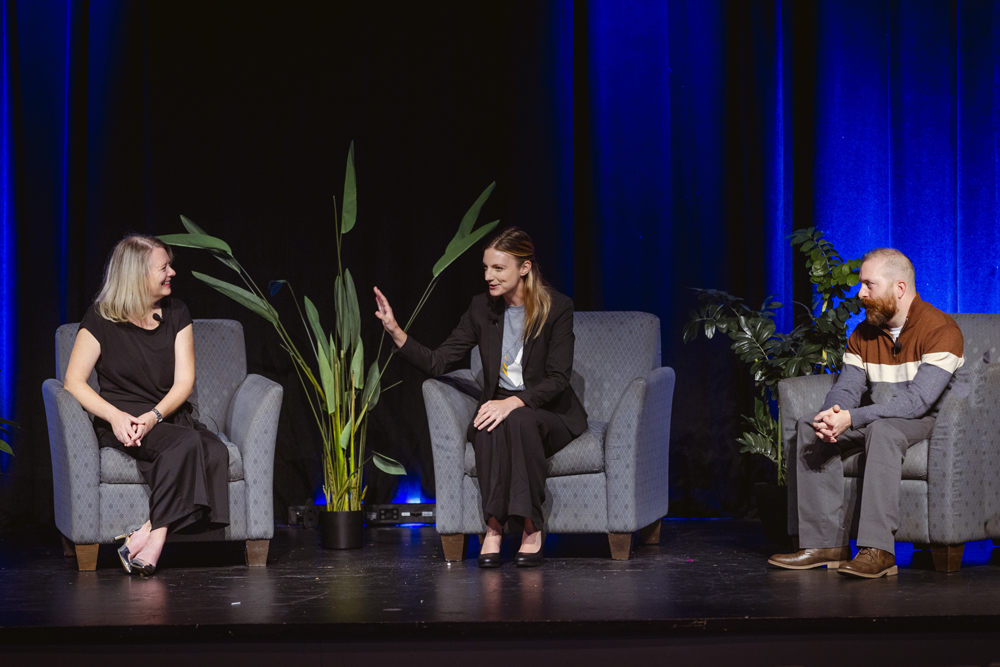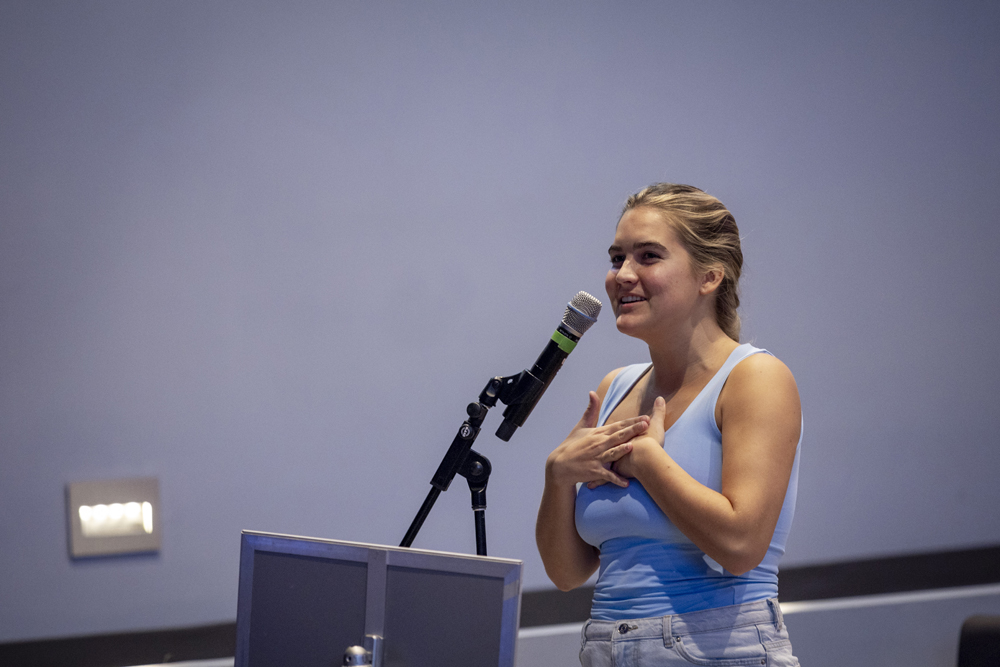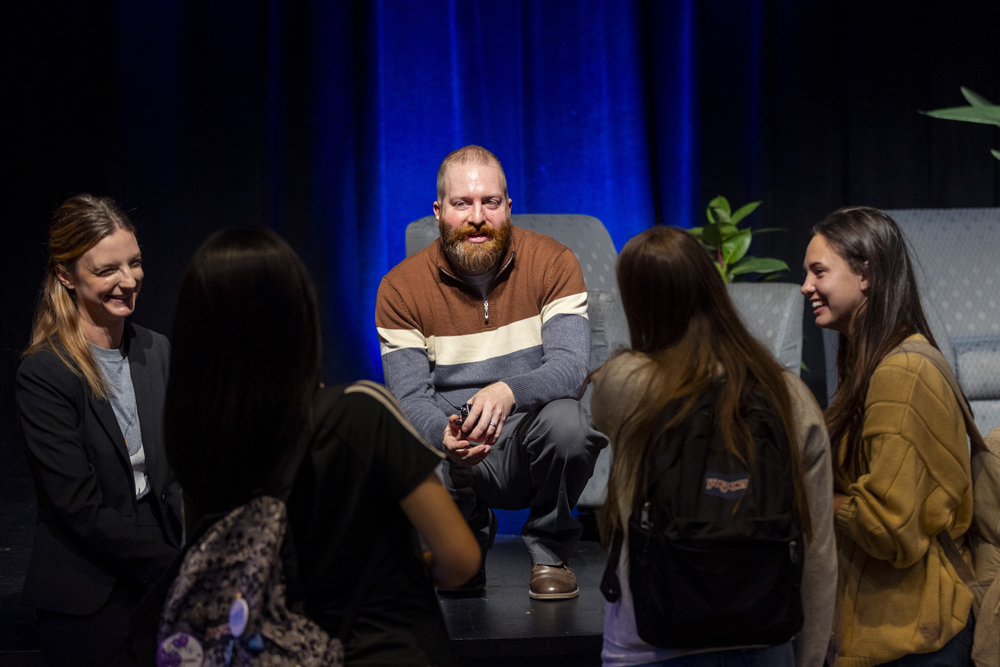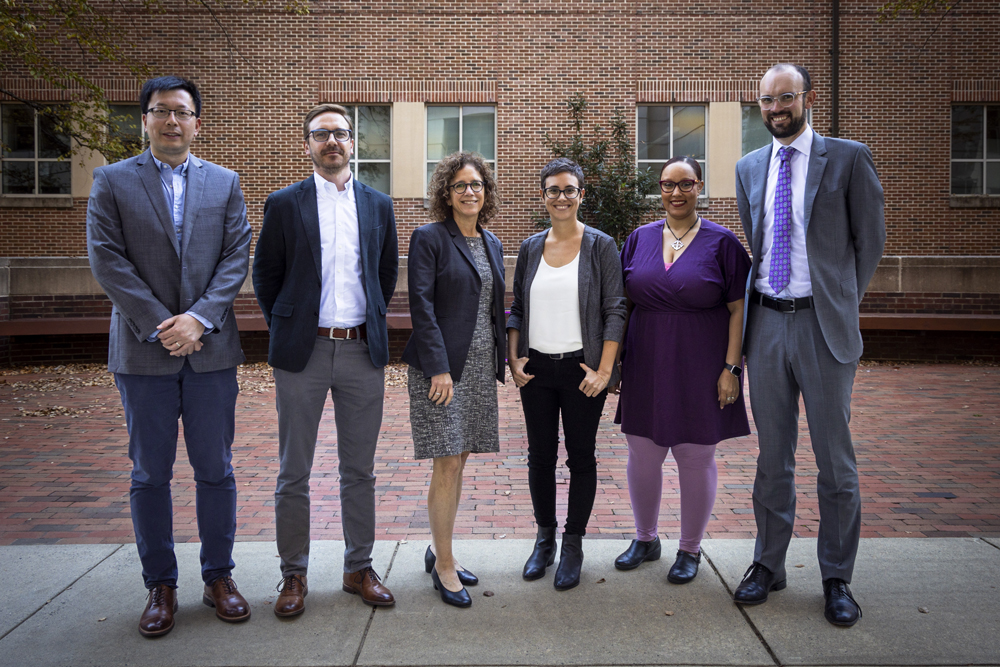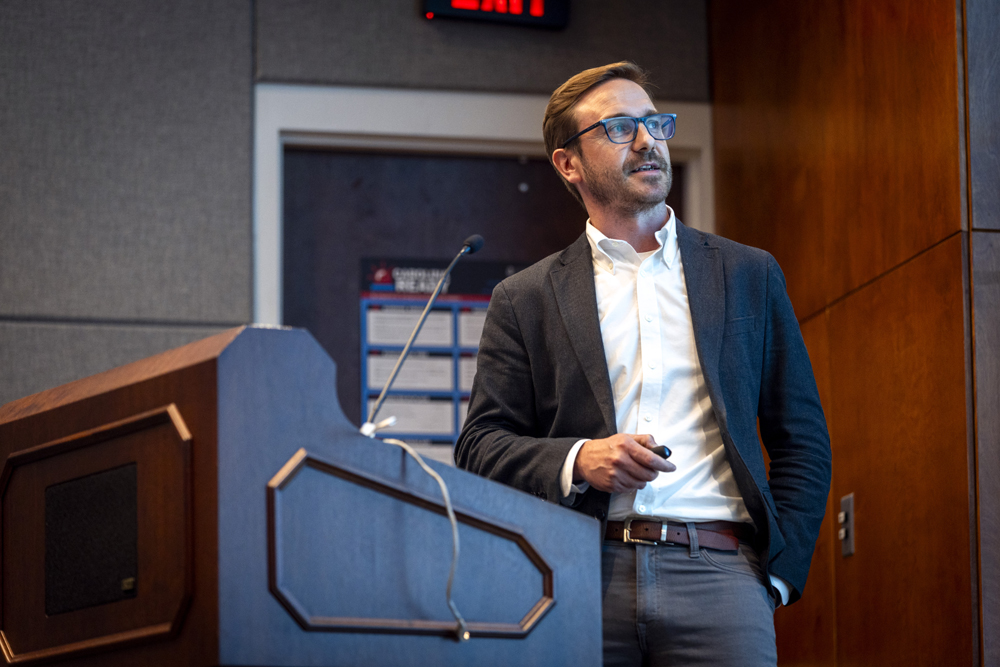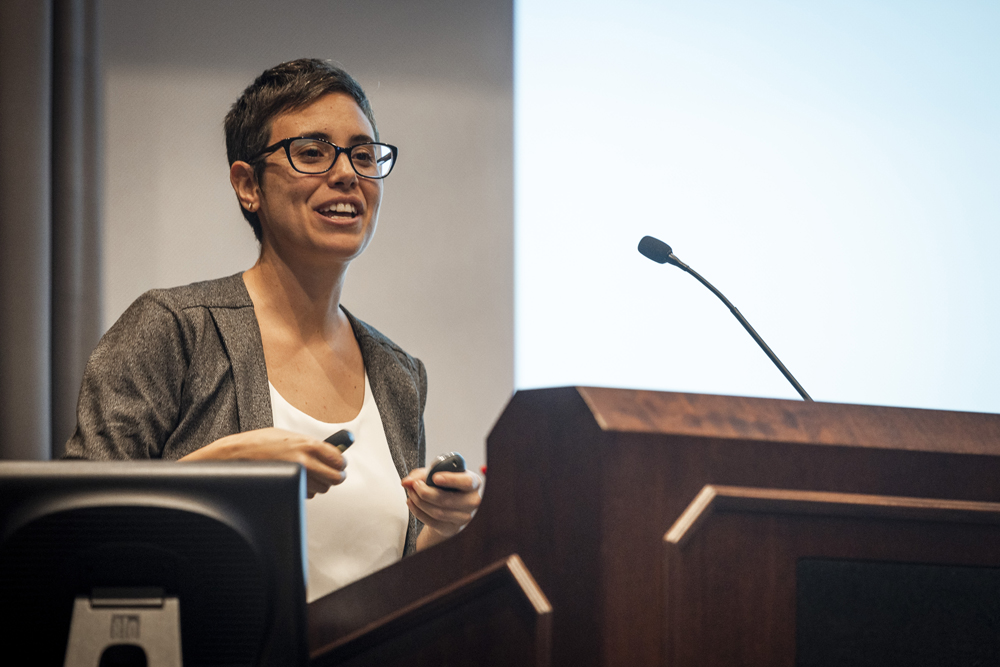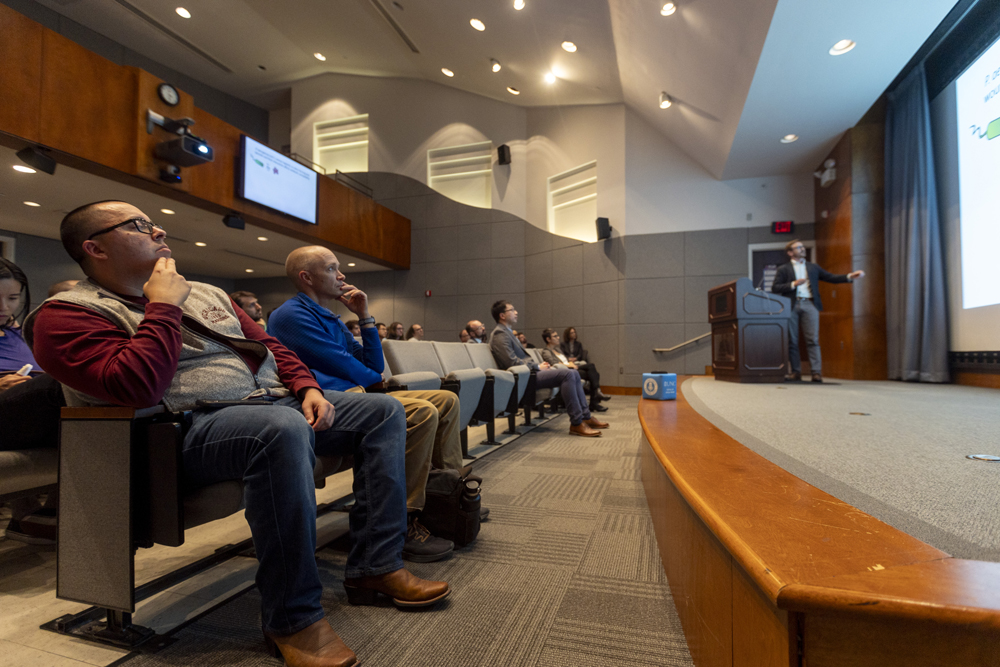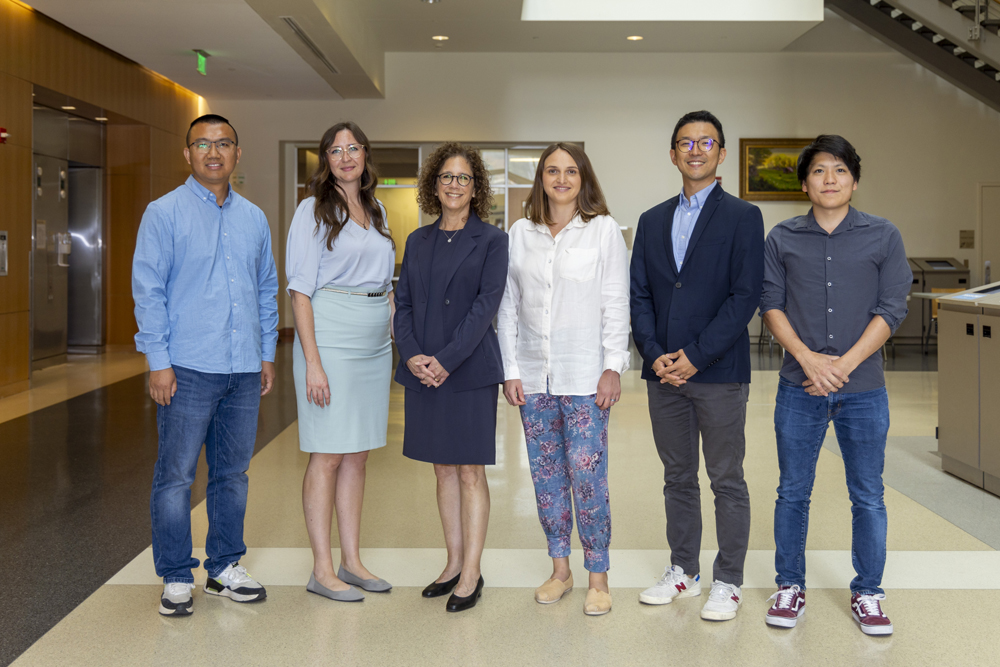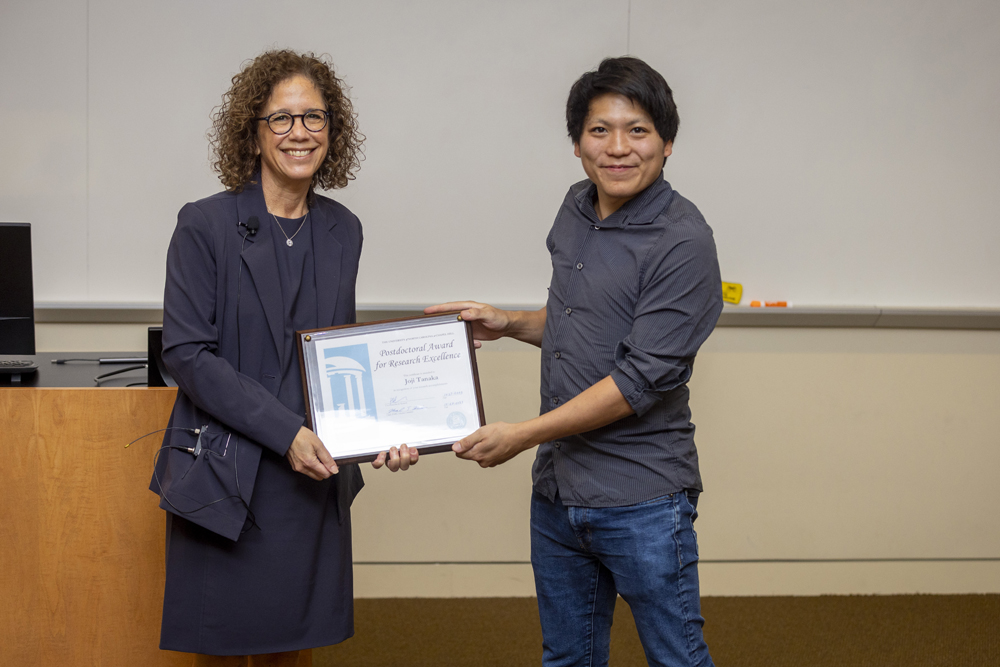Hundreds of students, staff, postdoctoral trainees, and faculty attended 67 events celebrating the exceptional achievements made by researchers across all our schools, centers, and institutes.
Throughout University Research Week (URW): A Climate of Change at Carolina, our community became more familiar with the impact UNC-Chapel Hill is making in our state and beyond as the world around us changes.
Here’s a look back at some events.
Lunch & Learn Sessions
Presented by the Office of the Vice Chancellor for Research, the Lunch & Learn series brought together Carolina researchers to share their work addressing and mitigating the impact of climate change in North Carolina. Each session featured a distinct theme and panel of experts.
View recordings of these sessions here:
- Presented by the Institute for the Environment and the NC Collaboratory
- Panelists: Mike Piehler, Antonia Sebastian, Greg Characklis
- Emceed by Greer Arthur
- Presented by Gillings School of Global Public Health
- Panelists: Jason West, Hans Paerl, Noah Kittner
- Emceed by Rebecca Fry
- Presented by the Environmental Finance Center and the School of Government
- Panelists: Ric Colacito, Donald Hornstein, Siddhartha Roy
- Emceed by Erin Riggs
- Presented by the Carolina Population Center
- Panelists: Nathan Dollar, Fern Hickey, Conge Song
- Emceed by Karen Guzzo
Climate Change and Global Health
- Presented by the Institute for Global Health and Infectious Diseases
- Panelists: David van Duin, Sylvia Becker-Dreps, William “Billy” Fischer
- Emceed by Tessa Andermann
Measuring Water from Space
A new NASA satellite called SWOT is recording the first global survey of Earth’s water cycle with unprecedented accuracy — and UNC-Chapel Hill hydrologist Tamlin Pavelsky is verifying its data from North Carolina to New Zealand. Pavelsky and his research team participated in a panel session led by UNC Research Communications Manager Alyssa LaFaro, who traveled with them to New Zealand in April 2023 to document their project.
[row]
[column lg=”6″ md=”6″ sm=”12″ xs=”12″ ]
[/column]
[column lg=”6″ md=”6″ sm=”12″ xs=”12″ ]
[/column]
[/row]
[row]
[column lg=”6″ md=”6″ sm=”12″ xs=”12″ ]
[/column]
[column lg=”6″ md=”6″ sm=”12″ xs=”12″ ]
[/column]
[/row]
Core Facilities Open House Tours
Core facilities serve as the backbone of UNC-Chapel Hill’s research infrastructure. During URW, the School of Medicine Office of Research Technologies and the Office of the Vice Chancellor for Research Core Development Team coordinated core open houses and tours to allow researchers and potential customers to experience these facilities in person.
[row]
[column lg=”6″ md=”6″ sm=”12″ xs=”12″ ]
[/column]
[column lg=”6″ md=”6″ sm=”12″ xs=”12″ ]
[/column]
[/row]
[row]
[column lg=”6″ md=”6″ sm=”12″ xs=”12″ ]
[/column]
[column lg=”6″ md=”6″ sm=”12″ xs=”12″ ]
[/column]
[/row]
Snapshot: Climate Exhibition Open House
The “Snapshot: Climate” exhibit from Southern Cultures magazine was on view at the Center for the Study of the American South and featured 25 photographs and accompanying short reflections from artists, activists, photojournalists, and scientists to provide a “snapshot” of climate impacts across the South.
[row]
[column lg=”6″ md=”6″ sm=”12″ xs=”12″ ]
[/column]
[column lg=”6″ md=”6″ sm=”12″ xs=”12″ ]
[/column]
[/row]
Communicating in a Climate of Change
The Office of the Vice Chancellor for Research presented this featured event to highlight the role of communications in research. Investigation and discovery are key to protecting our planet’s natural resources and advancing society. But understanding, inspiration, and progress stem from successful dissemination of those discoveries.
A panel of science communicators discussed how they explain complex topics with engaging content across a variety of media, and how their efforts engage audiences in a way that effects change. The panelists included: Matthew Turner, social media manager, National Park Service; Michelle Jewell, shark researcher and science communicator, N.C. State University; Kerry Irish, director of communications and marketing, N.C. Museum of Natural Sciences; and was emceed by Aimee Wilmoth, WRAL weather executive producer and meteorologist.
[row]
[column lg=”6″ md=”6″ sm=”12″ xs=”12″ ]
[/column]
[column lg=”6″ md=”6″ sm=”12″ xs=”12″ ]
[/column]
[/row]
[row]
[column lg=”6″ md=”6″ sm=”12″ xs=”12″ ]
[/column]
[column lg=”6″ md=”6″ sm=”12″ xs=”12″ ]
[/column]
[/row]
Hettleman Talks
Three recipients of the 2023 Phillip and Ruth Hettleman Prizes for Scholarly Achievement gave presentations on their innovative and groundbreaking research.
Yaiza Canzani explained how she focuses on understanding the behavior of Laplace eigenfunctions, which play a crucial role in explaining physical phenomena such as wave propagation, heat conduction, acoustics, and quantum evolution.
Brian Conlon showed how his research in the field of antibiotic resistance aims to make previously ineffective treatments work better by manipulating how the treatment is delivered on a microbial level and reversing resistance by tricking the bacteria into responding to medication.
Alex Worsnip described how his research of epistemology — the theory of knowledge — has made groundbreaking advances in the understanding of the nature of rationality.
Danielle Christmas, a 2022 Hettleman winner, presented her research on recovering and analyzing historical Black experiences and texts on their own terms and within a comparative frame to understand their further ramifications.
Angel Hsu, who applies data-driven approaches to evaluate climate and environmental policy at state and local levels, will present her studies at a later date.
[row]
[column lg=”6″ md=”6″ sm=”12″ xs=”12″ ]
[/column]
[column lg=”6″ md=”6″ sm=”12″ xs=”12″ ]
[/column]
[/row]
[row]
[column lg=”6″ md=”6″ sm=”12″ xs=”12″ ]
[/column]
[column lg=”6″ md=”6″ sm=”12″ xs=”12″ ]
[/column]
[/row]
PARE Talks
The recipients of the Postdoctoral Awards for Research Excellence (PARE) presented their research.
Jessica Hoffman studies the behavior and molecular pharmacology lab of Clyde Hodge. Her work is based on the scientific premise that addiction to alcohol and other drugs is a form of maladaptive neuroplasticity.
Joji Tanaka researches polymer chemistry and materials in the lab of Wei You. He led the creation of a new field called Reversible-Addition Fragmentation Chain Transfer (RAFT) step-growth polymerization that will help scientists achieve previously unattainable polymeric materials with unique chemical composition and architectures.
Aleksandra Skrajna works in Robert McGinty’s lab. Her research focuses on understanding universal principles that govern interactions with the nucleosome, the repeating unit of chromatin, which stores the genetic information of cells.
Ying Zhou is a member of Jinsong Huang’s lab. He conducts research with the goal of developing perovskite photodetectors to replace commercial silicon photomultipliers (SiPMs) for photon counting.
Woosuk Steve Hur works Matthew Flick’s lab in the UNC Blood Research Center. He focuses on uncovering the molecular and cellular mechanisms that link the development of thrombosis, obesity, and associated metabolic pathologies.
[row]
[column lg=”6″ md=”6″ sm=”12″ xs=”12″ ]
[/column]
[column lg=”6″ md=”6″ sm=”12″ xs=”12″ ]
[/column]
[/row]

